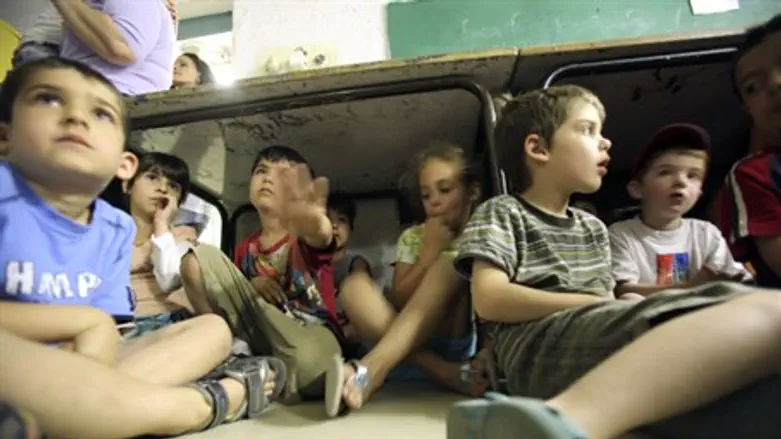
Sunday begins Israel's "national emergency week," sponsored by the National Emergency Authority (NEA) and the Ministry of Defense.
Over the coming week, government ministries, local authorities, and rescue agencies will conduct exercises simulating a massive missile attack against Israel.
"The week of national emergency was designed to test the emergency agencies and run through possible scenarios involving civilians," NEA chairman Bezalel Treiber stated to Walla! News Sunday. "One of them is the threat of heavy rocket fire from Hamas or Hezbollah with the opening of the [national emergency week] campaign, in order to test the resilience of the Israeli home front, as well as [the resilience] of citizens and infrastructure."
Another scenario: evacuating Judea-Samaria or the Gaza Belt region to other communities.
"Citizens closer to the border will be evacuated earlier than others," Treiber said. "The initial main focus is the elderly and disabled."
"These are executive exercises during which we met [with various government or local bodies - ed.] ad work on issues like cooperation or level of preparedness, and formulate together the conclusions to prepare the home front better, in collaboration with dozens of government agencies and more than 250 local authorities."
"We will discuss national preparedness to evacuate civilians and entire communities will be under fire," he added, noting that the current level of preparedness is "moderate plus."
Exercises will continue until Thursday.
Survey says...
An NEA survey conducted through Shiluv asked 500 respondents over 18 about the various issues related to Israeli emergency preparedness.
14% of respondents the NEA surveyed said they would evacuate their homes to another region in the event of a missile attack, but 40% said they would stay. Of those who would need to be evacuated, the majority would prefer to stay with relatives, whereas a small minority would prefer to go to an organized place for evacuees.
90% said they had chosen the space or room in advance where they would run in the event of a missile attack; 33% had partially stocked up with equipment and food in the event of another war; 9% had fully stocked up.
The greater majority of Israelis were "highly" (43%) or "reasonably" (42%) familiar with emergency instructions issued by the Home Front Command (HFC). 63% said they would know what to do in the event of a missile attack.
Knowledge is lower, however, in the event of an earthquake. 44% said they know "very much" about earthquake preparedness, 38% said they know a "reasonable" amount, but 18% said they know "little" about the procedures. Warning devices have been installed in 1,600 schools out of 3,100 across the country to help prepare for earthquakes.
Despite the high level of preparedness overall, just 25% of Israelis say they feel secure in their daily lives. 41% say they feel either "slightly" secure, or not at all. Southern residents, surprisingly, felt more secure than northern Israelis when surveyed. And overall, 33% of Israelis said in the event of a massive missile attack, they would still go to work - although just 9% of parents would send their children to school.